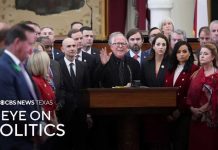
The Trump administration exposes Cuba’s medical missions as exploitative forced labor, cutting off crucial revenue for the communist regime.
Key Takeaways
- Secretary of State Marco Rubio has labeled Cuba’s international medical program as “forced labor” and imposed visa restrictions on officials involved.
- Cuba has deployed over 100,000 doctors to more than 70 countries, with 22,000 currently serving abroad—a crucial source of income for the struggling communist regime.
- Cuban Deputy Foreign Minister Carlos Fernandez de Cossio claims the U.S. is pressuring countries and financial institutions to sever ties with Cuba’s medical missions.
- The Trump administration has implemented new restrictions on Cuban entry into the United States, surprising the 2.4 million Cuban-Americans who have historically supported Republican policies.
Battle Over Cuba’s Medical Diplomacy Intensifies
A senior Cuban diplomat has launched a fierce defense of Cuba’s controversial international medical missions program after the Trump administration labeled the initiative as exploitative and imposed sanctions. Deputy Foreign Minister Carlos Fernandez de Cossio accused the U.S. government of deliberately undermining Cuba’s global healthcare initiatives, which provide critical revenue for the communist island’s struggling economy. The diplomatic clash highlights ongoing tensions between the U.S. and Cuba, with President Trump’s administration taking a hard line against what it views as the regime’s exploitation of its own citizens under the guise of humanitarian aid.
“forced labor,” said U.S. Secretary of State Marco Rubio.
The Trump administration has targeted Cuba’s medical program as part of its broader pressure campaign against the communist regime. Secretary of State Marco Rubio’s characterization of the program as forced labor represents a significant escalation in U.S. policy. The State Department has gone further by imposing visa restrictions on Cuban officials involved in the program and encouraging international scrutiny. This approach aligns with President Trump’s consistent position of confronting communist regimes that exploit their citizens while presenting a false humanitarian face to the world.
Scale and Economics of Cuba’s Medical Missions
Cuba’s medical diplomacy has reached impressive proportions, with more than 100,000 doctors deployed internationally over the years. Currently, over 22,000 Cuban healthcare workers serve in more than 50 countries worldwide. While Cuba portrays these missions as humanitarian aid, they also represent a vital economic lifeline for the regime. The arrangement typically involves host countries paying Cuba directly for the medical services, with the government retaining the majority of the funds while providing doctors with what Cossio described as “a dignified stipend” – an arrangement that U.S. officials view as exploitative.
“has prompted meaningful discussion of this exploitative labor export program after years of denial,” stated by The State Department.
The Inter-American Commission on Human Rights has requested information from Organization of American States members about their agreements with Cuba for medical missions, focusing particularly on labor rights concerns. This international scrutiny comes as defecting Cuban doctors have reported coercive practices, including confiscation of passports, surveillance, and threats against their families in Cuba if they abandon their assignments. These testimonies lend credibility to the Trump administration’s characterization of the program as exploitative rather than humanitarian.
Cuban Defense and U.S. Immigration Policy Shift
Deputy Foreign Minister Cossio vehemently defended the medical missions program, insisting that Cuban doctors receive regular salaries domestically plus stipends while abroad. He claimed that compensation from wealthier countries helps fund Cuba’s domestic public health system. However, this defense fails to address reports from former program participants who describe being allowed to keep only 20-30% of the money paid by host countries, with the Cuban government pocketing the rest. These arrangements generate billions in revenue for the cash-strapped communist regime.
“a dignified stipend,” said Cossio.
In a separate but related development, the Trump administration has also tightened immigration policies for Cubans, restricting entry on humanitarian parole and announcing additional visitor restrictions. This policy shift has surprised many of the 2.4 million Cuban-Americans who have traditionally supported Republican candidates and benefited from favorable U.S. immigration policies. The administration appears to be taking a comprehensive approach to addressing both Cuba’s exploitation of its citizens abroad and the potential security risks associated with unfettered Cuban immigration to the United States.







